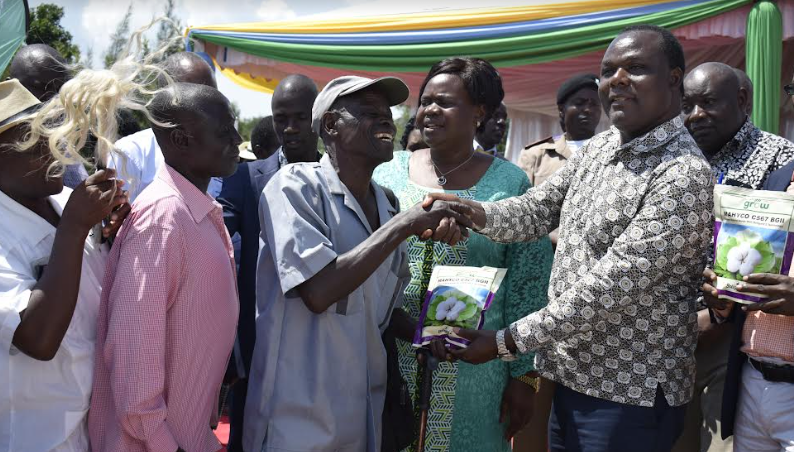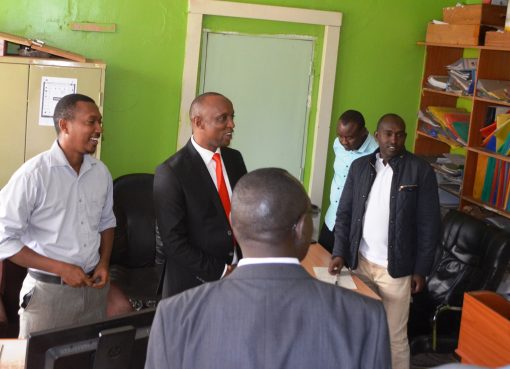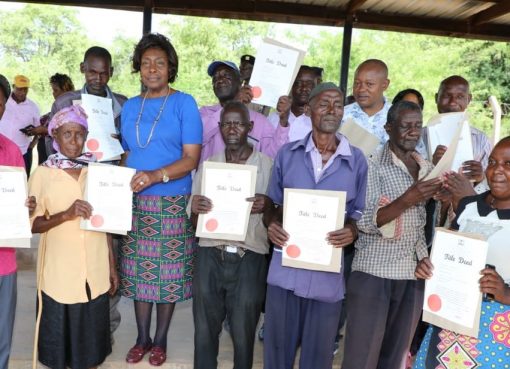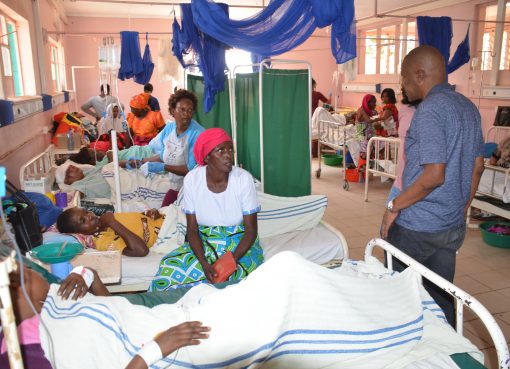The national government has distributed BT cotton seeds worth Sh3 million to crop farmers in Homa Bay County.
The seeds, donated by Rivatex, were distributed to 71 farmer groups across the county.
Speaking when he launched the seed distribution exercise at Magare village in Homa Bay Town constituency Saturday, Industry PS Dr. Juma Mukhwana said the government is partnering with 14 counties, including Homa Bay, to promote cotton crops.
Dr. Mukhwana said the national government has allocated Sh250 million to each of these counties, while the recipients will also allocate a similar amount for the project.
“We intend to supply cooperative societies in the localities with inputs, which farmers can get during planting and pay for the same later,” he said.
“Plans are underway to install ginneries for processing the cotton to be produced. The government is providing this kind of support to promote cotton production across the country,” said the PS, adding that farmers will also be provided with pesticides to aid in the production of the crop.
At the same time, the government will also establish industrial parks in the identified counties.
The PS said the government had identified Riwa in Karachuonyo constituency for the establishment of the special economic zone.
Dr. Mukhwana said they want to establish the park and a cotton factory in Homa Bay to create job opportunities for the youth.
The PS was hosted by Governor Gladys Wanga, her Deputy Oyugi Magwanga, and Homa Bay Deputy County Commissioner Jude Wasonga.
Others present were Rivatex Managing Director Thomas Kurgat, his counterparts at Rift Valley Products Ltd. (Salawa Ginnery), Sital Panara, and Thika Cotton Mill Ltd. Managing Director Tesal Dodiyia.
Cotton used to be one of the main cash crops in Nyanza in the 1980s and 1990s before it collapsed due to the mismanagement of cooperative societies.
Wanga said Homa Bay is partnering with Kisumu and Migori counties to revive cotton production.
The model will ensure the crop is produced in large quantities and farmers are paid on time.
Wanga said the collapse of the ginneries adversely affected the local economy.
“The establishment of new ginneries will bring back the lost glory of cotton farming. Our partnership with other counties will ensure more production of the crop,” she said.
Homa Bay has been one of the major suppliers of the crop to ginneries at the Salawa processing industry in Baringo County.
Last year alone, the county supplied 435,000 kilograms of cotton to ginneries across the country.
Wanga challenged youths to join cotton farming for economic empowerment, noting that the current aging farmers needed support.
The governor expressed concern that agricultural production in the county will decline if youths shun agriculture.
“There is a need for proper management of the cooperative societies. Youths should now develop and invest in cotton farming and support the county,” she said.
Kurgat and Panara said they are ready to support Homa Bay farmers to produce good-quality cotton.
“The buy Kenya-build Kenya clarion call will only be realized if we embark on serious production of cotton,’ Kurgat said.
Stakeholders in the cotton sector lauded the government for raising taxes on imported garments in the just-released budget, saying the move will protect local textile industries.
By Davis Langat





